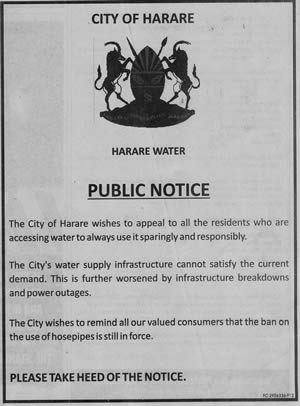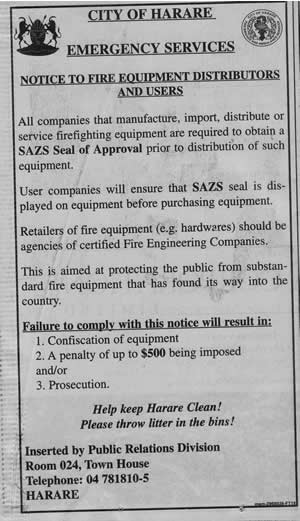HYPOCRITES Must Be Investigated Too
Friday, November 19th, 2010 by Thandi MpofuRecently, there have been increased calls from various quarters in society for investigations into the alleged corruption of high-ranking officials in the government of Zimbabwe. In an unexpected turn of events, new demands are emerging, seeking an extension of this exercise to include scrutiny of the activities of HYPer-Opinionated-Citizens-Readily-Ignoring-Their-Every-Sins or HYPOCRITES. Statistics show that many of the country’s citizens subscribe to the principles of this body (TI-Corruption Perception Index).
In a letter – a copy of the five-page document is in our possession – concern was expressed over the acceptance of HYPOCRITES’ questionable and widespread behaviour, which was clearly corrupt and underhanded. “We have observed that numerous dubious transactions are undertaken on a daily basis between HYPOCRITES and public officials. Payments are most frequently made to traffic police and to civil servants who issue identity and travel documents”.
HYPOCRITES were also accused of paying large sums to obtain learners’ and drivers’ licences. Part of the letter reads:
“These payments, which are made for selfish gain, also reflect the blatant disregard for the safety of others in society. With the right amount of cash, untrained ‘drivers’ are given free rein to maim and kill innocent road users. Of course, the traffic officer can also be paid to report the incident as an ‘unfortunate’ accident.”
The letter also queries how HYPOCRITES have the means to make these payments. Given the prevailing economic conditions and meagre salaries in general, the amounts paid were not justified. Payments to physicians were singled out for being exorbitant for various practices – issuing inauthentic medical reports, performing illegal procedures and hijacking medical equipment from state institutions for use by their private patients.
“In many instances, the HYPOCRITES who make these payments are well-off. They do not pay off officials out of necessity but to increase the comfort of their lives. The poor do not have electricity in their homes, let alone the means to pay employees of the power utility authority to excuse their homes from being affected by load shedding.”
“We are aware that the examples we have cited are the least of the rot, which runs deep,” says the letter. “Giving money to an official for a ‘coke’ is just the tip of the iceberg. HYPOCRITES have been known to build one or five mansions on illegally acquired council land and they regularly import fleets of luxury vehicles duty-free.”
The writers of the letter stated that they were aware that HYPOCRITES had shown great outrage at recent revelations and allegations of corruption by senior state officials. Some were even behind the calls for investigations. This profession of beliefs and opinions that the HYPOCRITES themselves do not hold or live up to was strongly castigated as insincere. “Only HYPOCRITES take stationery from the office for their children, and then complain that government officials grab national assets for their personal use. HYPOCRITES buy pirated music and movies and then get outraged that government officials seize ownership of assets without paying for them.”
The letter concluded with a demand for a full investigation into the extent of corruption in the country. The sweeping exercise would cover government officials and citizens at all levels. “If anyone is found guilty of corruption, it is proposed that legal proceedings be taken against them all, without fear or favour!”











